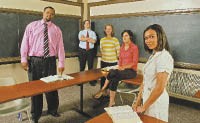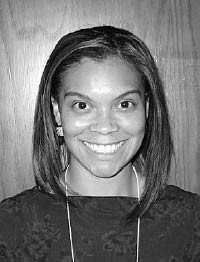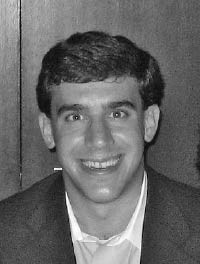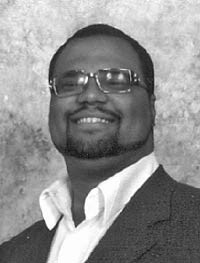In the last week of the various election campaigns, Shelby County Republicans drew a visit from a dignitary whose name wasn’t on the August 3rd ballot but may well be again in, say, 2008, when presidential primaries are held in various states, including Tennessee.
This was Bill Frist, the outgoing majority leader of the U.S. Senate, whose seat is up for grabs this year and has been hotly contested by Republicans Bob Corker, Ed Bryant, and Van Hilleary and Democrat Harold Ford Jr.
Before going to the Oaksedge grounds in East Memphis for an “ice cream social” sponsored by the local GOP, Frist sat down at the Wilson Air Terminal for an exclusive interview with the Flyer to discuss his current situation and future plans. Here are excerpts:
Flyer: Do you see your possible presidential race as being conflicted between conservative and moderate positions or between those wings of the Republican Party?
Bill Frist: We will see. I’m convinced that the party, including the nominating groups, are going to be focused on who can lead with principle, and that ultimately will be what distinguishes me in my service as a senator and if I decide to run for president.
And I think leading with principle is what has characterized me both as majority leader as well as being in the Senate itself — whether it’s on issues like the judges and a commitment to use the “nuclear option” if it came to that, to leading on Medicare, to entitlement-type reform issues, which traditionally Republicans don’t do, or stands on stem cells.
Issues like the Islamic movement that we see today which will so color our generation — I feel pretty good about that. I think my leadership style has been very different compared to previous leaders by my willingness to take certain risks in certain areas based on principle and acting on those principles.
The left didn’t like your position on the Terri Schiavo issue, and the right didn’t like your position on stem cells. Does that present a political problem?
Yeah, but I think that each of the issues, whether it’s HIV/AIDS, whether it’s reform of entitlements, whether it’s Schiavo, whether it is stem cells, whether it is tax cuts, [there’s] a consistent principle.
You look at stem cells: I did exactly what I said I was going to do six years ago … before the president came out, and that’s right where I am right now. That’s what people want. I’m a citizen/legislator. I said I was going to serve 12 years, and I’m not like most politicians who get in it and stay forever and say I didn’t really mean it. I do what I say, and that’s what people want.
How do you think you’ll do in the early primaries?
Well, again, this is all hypothetical, if I decide to run, but I think in particular New Hampshire and Iowa, those two states look right in somebody’s eyes and see the person, and then they make a judgment. Most people understand [that], being majority leader, my responsibility is, unlike other senators, to lead that upper legislative branch, the United States Senate. That’s what I get elected to do. And particularly the 55 Republicans, where I act and take into consideration those broad range of views in a way that gathers the strength and the leadership and minimizes the weaknesses of that group.
Is being majority leader, a very partisan position, a possible handicap to running for president?
It’s hard to say. You don’t see majority leaders become president. You don’t see United States senators become president. If one’s motivation [were] to be president, you certainly wouldn’t — or I certainly wouldn’t — have become majority leader when my colleagues came to me to serve the country and lead in the capacity of majority leader.
Thoughts on the ongoing Middle Eastern crises — Iraq and Lebanon?
With the current events, with the terrorist activity that’s going on right now in Israel and along that southern Lebanese border, with the rise of Hezbollah, a terrorist organization that is threatening the sovereignty of Israel, I think people are getting a much better understanding that the war on terror is not just a war on terror, it’s a war against a radical Islamic fascism that is not just in Afghanistan, is not just in Iraq, is not just in Lebanon, not just in Syria, not just in Iran but throughout that entire region.
And the importance of us recognizing that surrender is not a solution and that retreat is not an option when we have this growing, burgeoning entity whose purpose is to take down the West, destroy your future and the future of all Americans. Specifically, in Iraq, we should stay and do exactly what we’re doing now.
We need to continue supporting that now-sovereign government, with the full resources and the full moral might of the United States of America. We need to continue to focus attention on Iran, which is an even greater threat to the United States because of its commitment to nuclear proliferation. And then most acutely and most recently, we’re going to need to focus increasing attention on the northern Israel/southern Lebanon border.
Some worry that we’ve given a blank check to Israel. Do you agree?
No, we just passed a resolution on the floor of the Senate last week that condemned Hezbollah and supported Israel’s right as a sovereign state to defend itself, and so I don’t believe so. We have a long-standing relationship with Israel as an ally, and we will support them as an ally, and if their sovereignty is being threatened and being attacked, they need to defend themselves, and we will continue as we would with any ally.
Front Porch Politics: “Money can’t buy you love,” said the Beatles a generation ago. In a striking demonstration of commitment to the cause of “clean money and clean elections,” a goodly sized crowd gathered Sunday in the front yard of District 29 state Senate candidate Steve Haley to hear him and two other speakers — Democracy for Memphis activist Brad Watkins and state representative John DeBerry (see Viewpoint, p. 17) — insist that money can’t buy you good government, either.
In an obvious reference to a highly public campaign or two going on just now, the stem-winding DeBerry commented, “Thousands upon captive thousands of dollars are being pumped into Memphis and Shelby County to tell us that people we’ve never heard from before are better than those whom we know.”
In his remarks, Haley stood on his literally planked platform and unveiled political planks on strong handgun legislation, an end to regressive taxation, a further strengthening of predatory lending law, and, most importantly, publicly financed elections. “Clean money and clean elections,” said Haley. “That’s why we’re here. That’s the centerpiece of my campaign.”
Inadvertently left out of last week’s pre-election review was a reference to the hotly contested race for Shelby County trustee between Democrat Becky Clark and incumbent Republican Bob Patterson. Overlooked also was the District 87 state House race, in which incumbent Democrat Gary Rowe is favored over challenger Jeff Shields.
 Justin Fox Burks
Justin Fox Burks 




